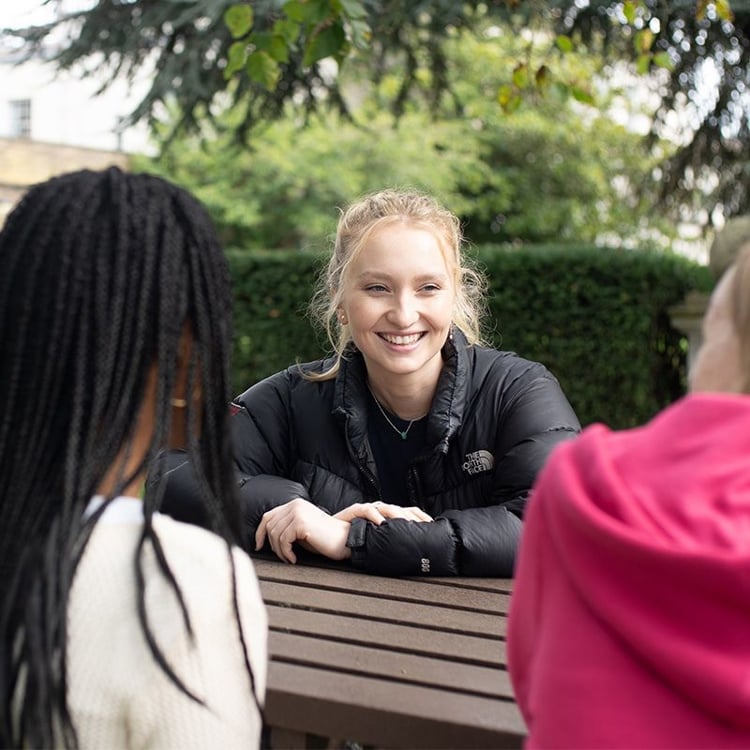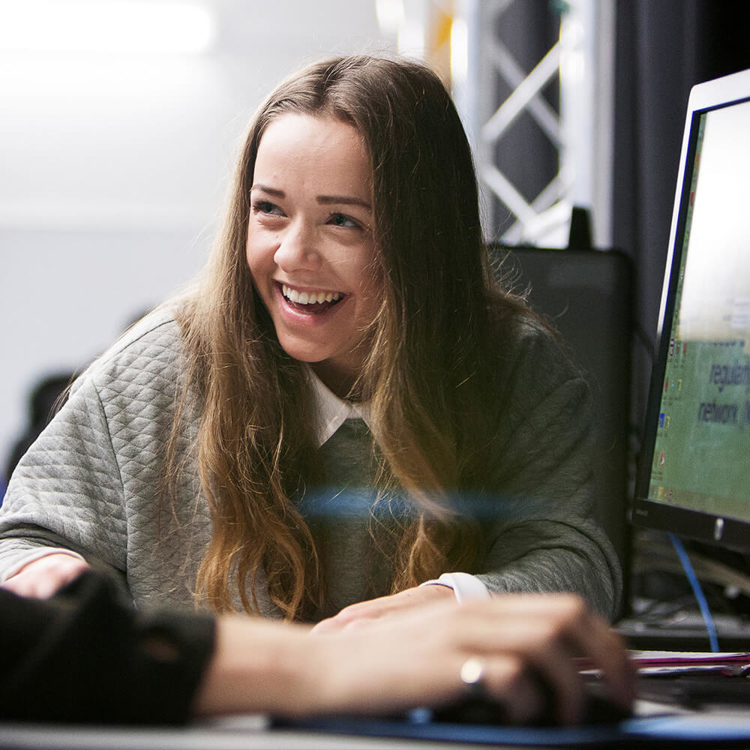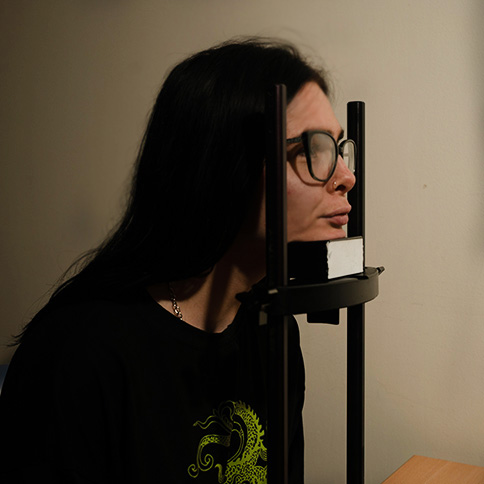Duration:
1 year (full-time)
2 years (part-time)
Number of credits:
180
Start date(s):
September 2025
January 2026
September 2026
Choose a master’s with a unique focus on human development from infancy to adulthood.
Did you know
You’ll learn from internationally renowned experts in the field of child and adolescent development including the co-author of the core textbook for the modules, Developmental Psychology (Pearson).
Modules
Module details: This module explores cognitive and biological development across the lifespan, from prenatal stages to childhood and adolescence. Topics include genetic and environmental influences, neurodevelopment, and resilience. You will examine key theories, methodologies, and neuroimaging techniques while considering applications in education, adulthood, and global contexts. This module equips you with essential theoretical and research-informed knowledge, fostering critical evaluation skills applicable to further studies and diverse professional settings.
How you’ll learn: This module includes virtual introductions to each week’s topic, campus lectures, seminars with assessment support, covering key theories, research, and practical applications through group discussions and debates about different perspectives or explanations. You will also engage with asynchronous digital materials each week, including pre-recorded instructions, video resources, and exercises.
Assessment: This module will be assessed through a study proposal and an infographic on a developmental topic.
Module details: This module explores human development, focusing on cognitive and socioemotional differences across stages, and addresses developmental issues like autism spectrum disorder (ASD) and attention deficit hyperactivity disorder (ADHD). You will learn to apply developmental psychology theory and research to assess and intervene in diverse contexts, considering individual and group differences. Topics will include diagnostic criteria, interventions, and how knowledge informs practice in various care settings. By studying this module, you’ll gain essential theoretical and research-informed knowledge and develop transferable skills for further studies and professional settings.
How you’ll learn: This module includes weekly virtual introduction to the topic, and campus lectures and seminar covering key theories, research, and practical applications through discussions and debates. You will also engage with asynchronous digital materials each week, including pre-recorded instructions, video resources, and exercises.
Assessment: The module assessments include an engaging image-based presentation (Pecha Kucha) on a neurodivergent condition and a leaflet presenting an evidence-based intervention in a specific context.
Module details: In this module, you will study interpersonal and emotional development across the lifespan, focusing on attachment, parenting, temperament, personality, social identity, and transitions from childhood to adulthood. Discussions will explore social and emotional development's role in shaping outcomes and practical applications. You will gain essential theoretical and research-based knowledge, develop critical evaluation skills, and apply this knowledge in diverse contexts, enhancing your academic and professional skills for further studies or the workplace.
How you’ll learn: This module includes weekly virtual introduction to the topic, and campus lectures and seminars covering key theories, research, and practical applications. You will also have asynchronous digital materials each week, including pre-recorded instructions, video resources, and exercises.
Assessment: This module will be assessed through a factsheet on a chosen topic and a critical analysis essay.
Module details: In this module, you will explore methods of investigating human development that enhance your research skills, including understanding data types, study design, analytic methods, and psychometric testing for children and parents. Practical workshops will focus on using tools and analysing developmental data. The module integrates into the programme, enhancing your ability to design and conduct studies, such as for the Capstone project, while providing essential investigative and technical analysis skills. Topics include research approaches, ethical issues, and dissemination of developmental psychology research, with transferable skills for further studies and the workplace.
How you’ll learn: This module includes weekly virtual introduction to the topic, and campus lectures and seminars on investigative approaches in developmental psychology, research studies, and practical applications of developmental test tools. You will also have asynchronous digital materials each week, including pre-recorded instructions, video resources, and exercises.
Assessment: This module will be assessed through a research poster based on a study and a research report on a different topic and method from the poster.
Module details: This module explores current issues in developmental psychology, including education, technology, media, cross-cultural differences, and global concerns like climate change. Topical sessions examine theory, research, and practice, while interactive seminars discuss their impact on individuals and societies. You will develop critical analysis skills, apply developmental psychology concepts to real-world problems, and enhance transferable skills for further studies or the workplace. Topics include children’s media use, schooling, education transitions, migration, and developmental psychology’s role in these areas.
How you’ll learn: This module includes weekly virtual introduction to the topic, and campus lectures and seminars on key contexts like technology, media, education, and global issues, with group discussions, coursework support, and formative feedback. These are complemented by asynchronous digital materials each week, including pre-recorded instructions, video resources, and exercise.
Assessment: This module will be assessed through a portfolio consisting of a précis in poster format on one of three current issues and an applied review evaluating the applications of the theory and research on another of the three issues.
Module details: This module differs from a typical dissertation by allowing you to investigate a developmental topic through research or reflective practice. You will apply analytic and project management skills as an independent inquirer, with supervision, while exploring ethical principles, research-practice links, and reporting techniques. The module integrates research and practice, enhancing your ability to design and conduct projects, develop presentation and writing skills, and apply knowledge to real-world contexts, supporting both academic growth and career aspirations in developmental psychology.
How you’ll learn: This module includes, in the spring term, weekly virtual introduction to the topic, and campus lectures and seminars on investigative approaches and reflective skills for developmental psychology. These are complemented by asynchronous digital materials each week, including pre-recorded instructions, video resources, and exercise. The summer term involves research or practice fieldwork for your individual project, with regular supervisions with an allocated supervisor.
Assessment: This module will be assessed through an oral presentation of the project plan and a dissertation write up of the project.
These are the current planned modules on this course and may be subject to change.

Skills
Become an expert in the key domains of cognitive and social development, from infancy through to adulthood.
Throughout your MSc, you’ll learn:
- The use of investigative tools to assess development.
- To conduct appraisals of educational and other applied issues.
- Empirical and reflective skills and apply this to your research project centred around your interests and ambitions.
This programme is an ideal choice if you want to pursue research or practice with further training in education, wellbeing and mental health care. If you’re a working professional in health or education, this programme will advance your knowledge in developmental psychology and its application to your work.
The topics you’ll study include:
- Social, emotional and behavioural development – examine the development of interpersonal and emotional processes and their impact on behaviour. Study attachment and parenting styles, temperament and personality, self and identity, social interactions and relationships, and transitions in adolescence and adulthood.
- Investigative methods and tools for developmental psychology – explore the ways human development can be investigated. Learn about research design and data types, measures and questions, and inquirer techniques and tools such as psychometric testing for children and parents.
- Developmental diversity – learn about developmental differences, including neurodiversity and maladaptive issues at different stages of human development.
Learning
Learn through interactive seminars and workshops on campus, as well as online lectures, giving you flexibility with your studies as well as in-person contact.
This includes:
- Seminars considering the role of special education, classroom management, and school counselling.
- Discussions on the ways in which developmental psychological theory and research can be applied in different contexts such as schools and universities, how to cater to diverse needs and care settings, and the use of different psychological interventions.
- Workshops where you will practice the use of tools and tests and go on to analyse developmental research data.
You’ll also spend time working with your supervisor who will advise and support you through your capstone research project.

You’ll be learning alongside academics from our Centre for Research in Psychological Wellbeing. Our research spans experimental and developmental psychology, cognitive neuroscience, counselling psychology, and the arts and play therapies. This includes our research in Applied Research and Assessment in Child and Adolescent Wellbeing. We work to promote better understanding and improving social and psychological well-being of children, adolescents, and their families, through innovative research into public health, health services, policy and practice. Find out more about our research in child and adolescent wellbeing.

Assessment
Become a specialist in your field.
Your assessments will build your expertise and advance your spoken, visual, written, analytical, technical and reflective skills. This includes:
- Written assignments, including essays, reports and reviews.
- Authentic assessments, such as presentations and posters.
- Independent work, including your ethical proposal and your capstone dissertation.
As part of your MSc, you’ll complete your Capstone Project. Following a literature review and discussion with a supervisor, you’ll develop and present a proposal based on an empirical investigation or practice evaluation. You’ll then complete the project using primary data research or reflective practice, such as in your workplace or shadowing practice elsewhere. This will be assessed through a dissertation on your findings and practice implications.
Careers
Advance your career in the field of developmental psychology.
As a graduate, you could go on to work within developmental psychology, education, or therapeutic services. You could also progress onto further study such as doctorial level training with the School of Education, or clinical or counselling psychology following an accredited general Psychology degree such as our MSc Psychology (Conversion), or PhD research.
Further work experience could include working as an assistant psychologist or research assistant (requirement of a further BPS-accredited psychology degree may apply), support roles in schools and other places of learning, professionals in youth or adult care settings, and mental health or wellbeing practitioners.

Open days
Get a real taste of our campus, community and what it’s like to study at Roehampton
Applying
Full-time UK postgraduate students apply through our direct application system.
Course subject to curriculum review and validation.
Specific entry requirements
A second-class honours undergraduate degree or equivalent.
General entry requirements
September 2025 entry tuition fees (UK)
| Level of study | Full-time | Part-time* |
| MSc | £11,250 | £5,625 |
*Year 1 fee
Additional costs to consider
Some practice or research visits will require students to have an enhanced DBS check.
Travelling as additional costs unless students already work at the visited places.
We offer a wide range of scholarships and bursaries. See our financial support pages for UK students.
We also provide other ways to support the cost of living, including free buses and on-campus car parking, hardship support and some of the most affordable student accommodation and catering in London. Find out more about how we can support you.
International undergraduate students apply through our direct application system.
Course subject to curriculum review and validation. [REMOVE IF NOT NEEDED]
Specific entry requirements
A second-class honours undergraduate degree or equivalent.
General entry requirements
September 2025 entry tuition fees (international)
| Level of study | Full-time | Part-time* |
| MSc | £18,250 | £9,125 |
*Year 1 fee
Additional costs to consider
Some practice or research visits will require students to have an enhanced DBS check.
Travelling as additional costs unless students already work at the visited places.
We offer a wide range of scholarships and bursaries. See our financial support pages for international students.
We also provide other ways to support the cost of living, including free buses and on-campus car parking, hardship support and some of the most affordable student accommodation and catering in London. Find out more about how we can support you.

